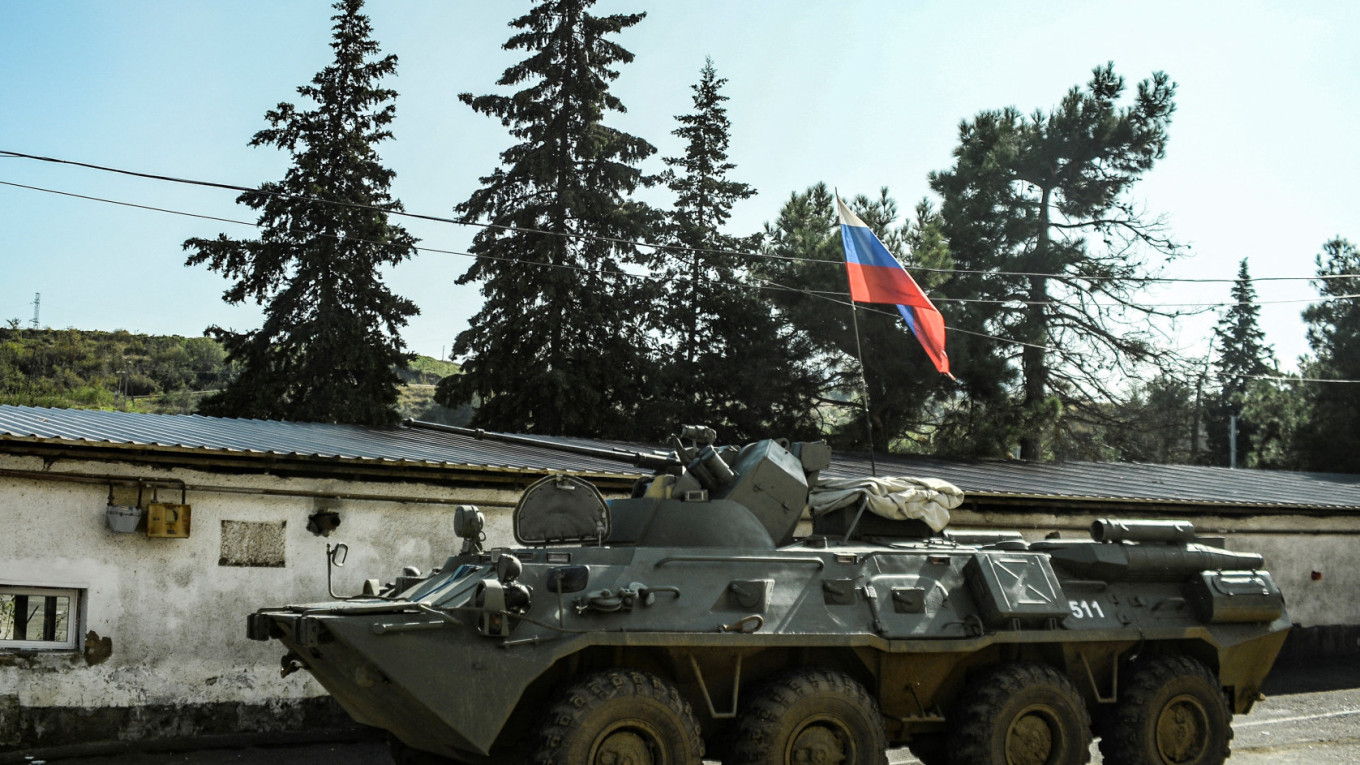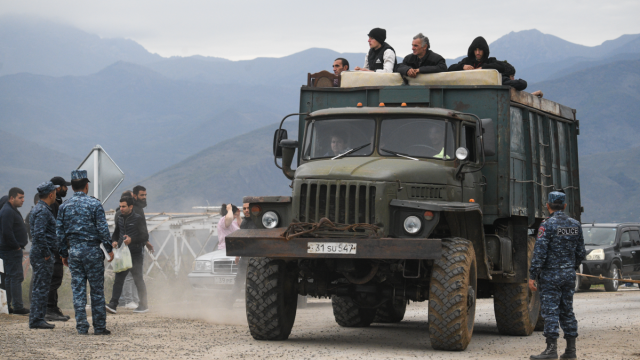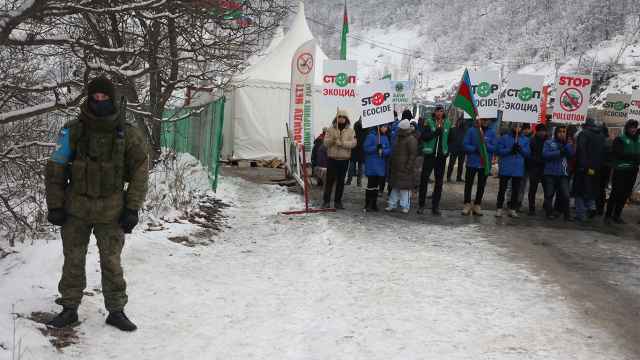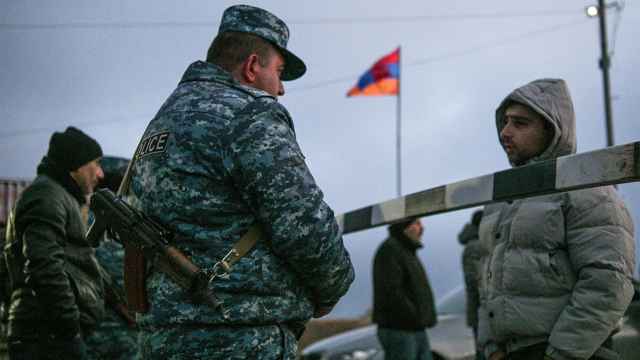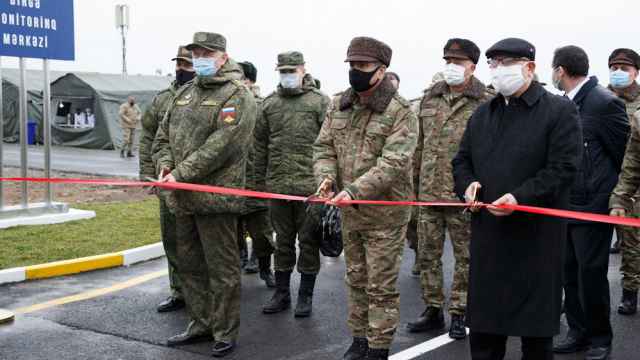Russian peacekeepers on Wednesday completed their withdrawal from the Nagorno-Karabakh region, which Baku recaptured last year from Armenian separatists, officials in Baku said.
Azerbaijan and Armenia had fought two wars — first from 1988 to 1994 and then again in 2020 — for control of the then-breakaway enclave.
"The process of the full withdrawal of the manpower, weapons, and equipment of Russia's peacekeeping contingent [in Karabakh] from Azerbaijan was completed on June 12," Azerbaijan’s Defense Ministry said in a statement.
Nearly 2,000 Russian peacekeepers had been stationed in Karabakh, in accordance with a ceasefire agreement between Yerevan and Baku, signed in November 2020. The Russian troops had a mandate to remain until 2025, but Moscow’s war in Ukraine is putting pressure on the country’s armed forces.
The withdrawal, which began in April, had been agreed between Russian President Vladimir Putin and his Azerbaijani counterpart Ilham Aliyev.
Last September, Baku took over the territory in a lightning offensive that triggered a refugee crisis. Almost the entire local population of around 100,000 ethnic Armenians left for Armenia, fearing reprisals and repression.
The peacekeeping contingent did not intervene.
The territory is internationally recognized as part of Azerbaijan despite historically being home to a majority Armenian population. It was controlled by pro-Yerevan separatists for nearly three decades.
The conflict has seen ties sour between traditional allies Russia and Armenia, with Yerevan accusing the Kremlin of failing to protect it in the face of a security threat from Azerbaijan.
After the loss of Karabakh, Yerevan has sought to forge new security alliances by deepening ties with the West.
On Tuesday, Armenian Foreign Minister Ararat Mirzoyan and the United States Assistant Secretary of State for Europe and Eurasia James O'Brien issued a joint statement saying Washington and Yerevan have agreed to "upgrade the status of our bilateral dialogue to a Strategic Partnership Commission".
Last month, Yerevan returned to Azerbaijan four frontier villages that it had captured in the 1990s.
The move, which Prime Minister Nikol Pashinyan has defended as aimed at securing a definitive peace deal with Baku, sparked a wave of mass protests in Armenia.
A Message from The Moscow Times:
Dear readers,
We are facing unprecedented challenges. Russia's Prosecutor General's Office has designated The Moscow Times as an "undesirable" organization, criminalizing our work and putting our staff at risk of prosecution. This follows our earlier unjust labeling as a "foreign agent."
These actions are direct attempts to silence independent journalism in Russia. The authorities claim our work "discredits the decisions of the Russian leadership." We see things differently: we strive to provide accurate, unbiased reporting on Russia.
We, the journalists of The Moscow Times, refuse to be silenced. But to continue our work, we need your help.
Your support, no matter how small, makes a world of difference. If you can, please support us monthly starting from just $2. It's quick to set up, and every contribution makes a significant impact.
By supporting The Moscow Times, you're defending open, independent journalism in the face of repression. Thank you for standing with us.
Remind me later.


